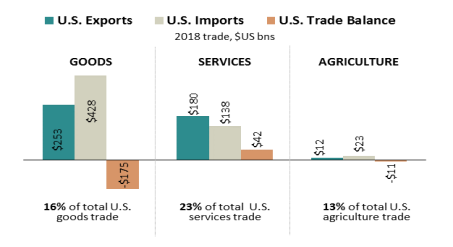In the ever-evolving landscape of international trade, tax treaties have emerged as pivotal instruments influencing the flow of goods across borders. For the European Union, a region renowned for its rich agricultural heritage, these fiscal agreements play a crucial role in shaping the trajectory of its agricultural exports. As global markets become increasingly interconnected, understanding the impact of tax treaties on the EU‘s agro exports becomes essential for policymakers, businesses, and stakeholders within the agricultural sector.
Analyzing Tax Treaties’ Role in EU Agro Exports
Tax treaties serve as a framework for facilitating cross-border trade by mitigating the risks of double taxation and fostering a more predictable fiscal environment for exporters and importers alike. In the context of the EU’s agricultural exports, these treaties can significantly influence the competitiveness of EU products in international markets. By reducing or eliminating withholding taxes on dividends, interests, and royalties, tax treaties lower the cost of doing business for agricultural exporters, enabling them to offer more competitive pricing in foreign markets.
Moreover, tax treaties often include provisions that prevent discriminatory taxation practices, ensuring that EU agricultural products are not disadvantaged compared to local goods in foreign markets. This can be particularly beneficial for EU exporters seeking to penetrate markets with protectionist tendencies. The assurance of fair and equitable treatment under these agreements can also encourage EU agricultural producers to invest in expanding their international presence, knowing that their financial interests are safeguarded by a robust legal framework.
However, the effectiveness of tax treaties in boosting EU agricultural exports also depends on the specific terms negotiated in each agreement. Factors such as the breadth of covered taxes, dispute resolution mechanisms, and the inclusion of anti-abuse provisions can all influence the extent to which these treaties facilitate trade. Therefore, a nuanced understanding of individual treaties is essential for assessing their impact on the EU’s agro-export landscape.
How Fiscal Agreements Shape EU Agriculture Markets
Fiscal agreements, including tax treaties, shape EU agriculture markets by influencing the allocation of resources and investment flows within the sector. By providing a stable tax environment, these treaties enhance the attractiveness of EU agricultural products and encourage foreign direct investment in the region’s agribusinesses. This influx of capital can lead to increased productivity, innovation, and competitiveness, ultimately benefiting the EU’s agricultural markets.
Additionally, tax treaties can impact the strategic decisions of EU agricultural producers regarding market entry and expansion. With reduced tax barriers, EU exporters are more likely to explore new market opportunities, diversify their export destinations, and establish long-term trade partnerships. This diversification not only reduces dependency on a limited number of markets but also enhances the resilience of the EU’s agricultural sector against global economic fluctuations.
However, the influence of tax treaties on EU agriculture markets is not without challenges. The complexity of these agreements and the need for continuous negotiation and adaptation to changing global tax standards can pose significant administrative burdens for both governments and businesses. Furthermore, the potential for tax treaty abuse, such as profit shifting and tax base erosion, requires vigilant monitoring and enforcement to ensure that the intended benefits of these agreements are realized without compromising the integrity of the EU’s taxation system.
In conclusion, tax treaties play a vital role in shaping the EU’s agricultural export landscape by providing a conducive environment for trade and investment. While these agreements offer numerous benefits, including reduced tax burdens and enhanced market access, the complexity and potential for abuse necessitate careful consideration and strategic negotiation. As the EU continues to navigate the challenges and opportunities of the global agricultural market, the role of tax treaties will remain central to its efforts to maintain competitiveness and foster sustainable growth in the sector.
